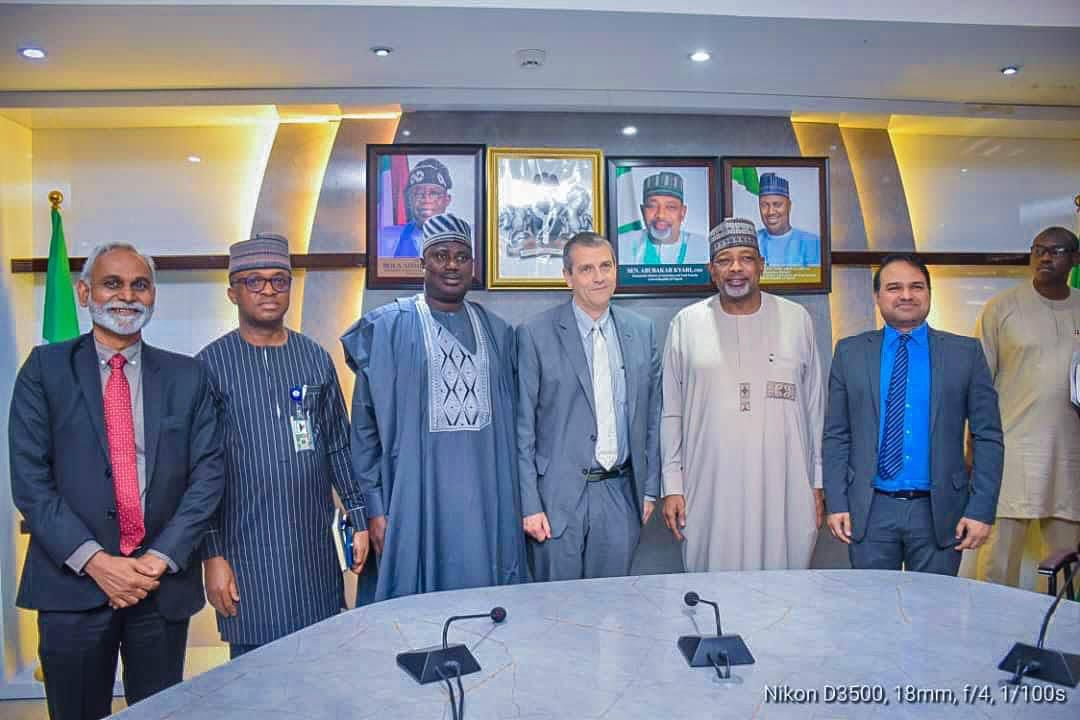

The Nigerian government, in partnership with the International Cotton Advisory Committee(ICAC), is embarking on a transformative initiative to revitalize the nation’s cotton industry.
As a start, this strategic move aims to create over 1.4 million jobs annually within the cotton and textile sectors and net in between 7.2 billion USD and 8.2 billion USD annually, marking a significant step toward economic renewal.
Dr. Kingsley Uzoma, Senior Special Assistant to the President on Agribusiness and Productivity Enhancement, is at the forefront of this ambitious project.
Under Vice President Kashim Shettima’s leadership and guidance, Dr Kingsley Uzoma is driving this revitalization effort which seeks to address historical challenges faced by Nigeria’s cotton industry.
By focusing on enhancing the entire cotton value chain—from cultivation to textile and garment production—Dr Uzoma is driving a strategic overhaul of the sector.
This initiative aligns with the broader industrialization goals of President Bola Tinubu’s administration and aims to restore Nigeria’s position in the global cotton market.
The revitalization plan is expected to kickstart with the cultivation of 500,000 hectares of cotton, which is expected to create up to 1.4 million jobs and generate between 7.2 billion USD and 8.2 billion USD in annual revenue, across various stages of the value chain.
This includes cotton farming, ginning, spinning, textile manufacturing, and garment production.
The creation of these jobs will provide significant economic benefits and improve livelihoods nationwide, especially in the cotton farming communities in Northern Nigeria.
The initiative tackles several key issues that have historically hindered the growth of Nigeria’s textile industry.
One major challenge has been the reliance on cheaper polyester alternatives, which has overshadowed the use of higher-grade cotton.
By reforming policies and enhancing domestic cotton production, the major raw material for the sector, the initiative aims to reduce this reliance and boost the competitiveness of Nigerian textiles.
The project will also address raw material shortages and combat smuggling, which have previously impacted the industry’s growth.
The revitalization effort includes a commitment to protecting the industry and reintroducing many closed textile mills.
The goal is to increase the number of operational textile mills from the current 24 to around 70, reflecting a major rebound from past declines.
The collaboration with ICAC brings fresh perspectives and expertise to the project.
By integrating new skills and innovative practices, this partnership will help enhance cotton cultivation, improve textile manufacturing processes, and position Nigeria as a leader in the global cotton market.
Vice President Shettima’s strategic leadership is crucial in guiding this revitalization effort.
The initiative represents a crucial opportunity for Nigeria to harness its cotton industry’s potential, drive economic growth, and create millions of jobs.
With a focus on reforming policies, enhancing production, and addressing past challenges, Nigeria is poised to reclaim its position in the global cotton and textile markets and achieve long-term economic success.
As preparations for the burial of Mr. Bernard Tyozenda Ortom, the younger brother of the…
A large number of defectors from various political parties, including the APC, LP, NNPP, and…
The youth wing of Ochetoha K'Idoma, the apex socio-cultural group of the Idoma people, has…
Senator Abba Moro, representing Benue South Senatorial District and Senate Minority Leader, has expressed deep…
Youths in Otukpo, Benue State, clashed with security forces on Tuesday during a protest against…
Senator Natasha Akpoti-Uduaghan has arrived in Kogi Central to a massive crowd of supporters, despite…